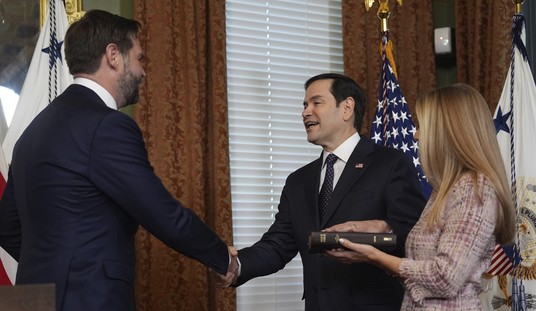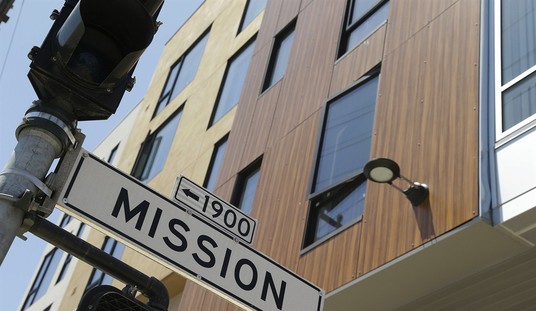The argument over the danger presented by Iran takes a strange turn today, with Iranian clerics pointing out the Messianic tendencies of the man who would have his finger on the trigger if Tehran gets nuclear weapons. The leading mullahs of the mullahcracy have told Mahmoud Ahmadinejad to stop opining on the 12th Imam and to leave the religious interpretations to the professionals, which Ahmadinejad rejected shortly afterwards. The issue erupted when Ahmadinejad claimed the support of the lost Imam of Shi’ite theology, their Messiah who will return in end times:
In his almost three years as president of Iran, Mahmoud Ahmadinejad has been harshly criticized in the West. But he is increasingly drawing fire from Shiite clerics here, who accuse him of using religion to distract attention from his government’s failure to deliver on promises of prosperity and political freedoms.
In a news conference last week, the president lashed out at those who were “insulting and mocking” him about a Shiite belief that he said was based on Islamic teachings.
The tensions surround Imam Mahdi, the 12th imam in a direct bloodline from the Prophet Muhammad, who the Shiite faithful believe will one day emerge from 1,000 years in hiding to save mankind and bring justice to the world. Tens of thousands of pilgrims go each year to the Jamkaran mosque near Qum, about 75 miles south of Tehran, where they believe that the imam will appear.
President Ahmadinejad, who came to office in 2005 declaring his intention to “hasten the emergence” of Imam Mahdi, said in a speech broadcast nationally this month that Imam Mahdi supported the day-to-day workings of his government and was helping him in the face of international pressure.
That was too much for senior clerics, who contend that they alone are qualified to speak on the topic.
One can understand the concerns of the clerics. Ahmadinejad appears to have set himself in the place of a Muslim John the Baptist, preparing the way for the 12th Imam and bolstering that mission by claiming that role publicly. That would threaten the authority of the Guardian Council if Ahmadinejad convinces the Iranians of his claims.
It would be easy to dismiss the notion that anyone would take him seriously, but we have seen numerous examples in the West of what can happen when charismatic leaders claim to know that the End Times have arrived. Waco, Jonestown, and the Heaven’s Gate cults all come to mind, and most of the time these cults end in disaster. Some people have a deep-seated need to feel as though they have ringside seats for the end of the world and that they have the magic key to avoiding its fate.
Now imagine that dynamic with the head of state as its focal point, a state which may soon have nuclear weapons, and the danger becomes clear. This is the danger that Barack Obama dismisses with his comparisons to the evil but rational Soviet Union and talk of finding “common interests” in meeting with Ahmadinejad. At this point, such a meeting would probably fuel Ahmadinejad’s belief in his transcendent role in the progress of the Mahdi. It would certainly boost his prestige at home and have some Iranians believing in that role, which could hasten disaster rather than put it off.
Ahmadinejad is an unstable and dangerous character, one that makes even the mullahs nervous. Why would the US act to give him even more credibility?








Join the conversation as a VIP Member